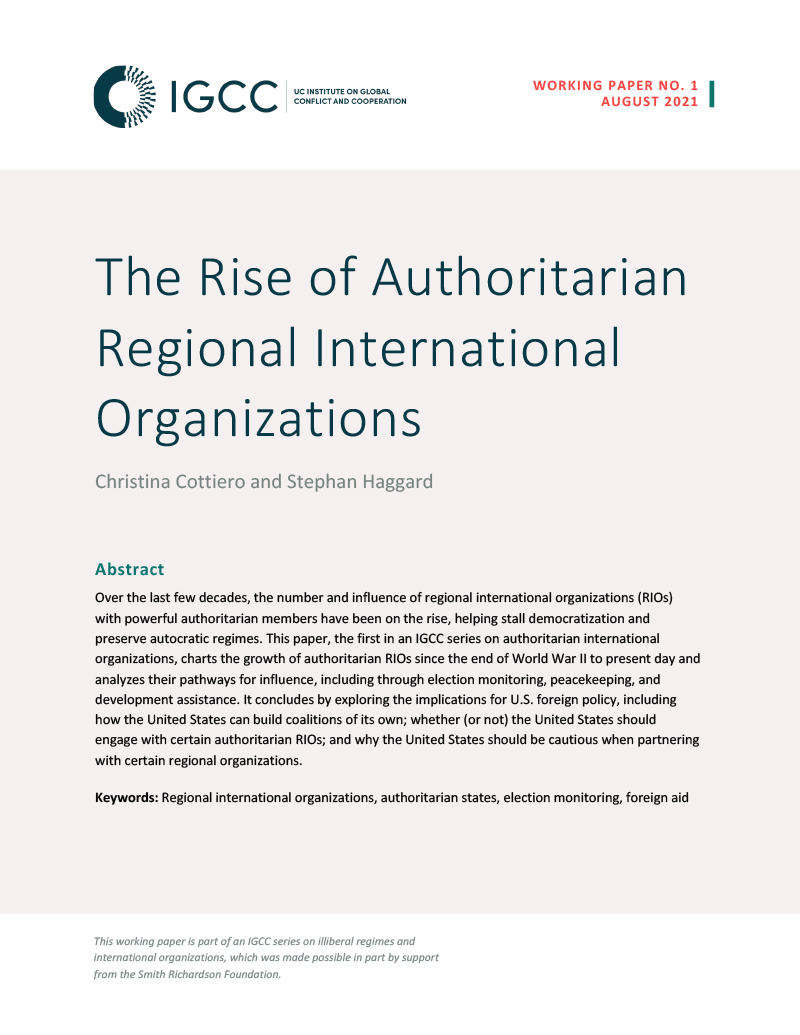The Rise of Authoritarian Regional International Organizations

In this working paper, IGCC affiliates Christina Cottiero and Stephan Haggard chart the growth of authoritarian Regional International Organizations (RIOs) since the end of World War II to present day, analyze their pathways for influence—including through election monitoring, peacekeeping, and development assistance—and explore the implications for U.S. foreign policy.
DownloadOver the last few decades, the number and influence of regional international organizations (RIOs) with powerful authoritarian members have been on the rise, helping stall democratization and preserve autocratic regimes. This paper from IGCC affiliates Christina Cottiero (University of Utah) and Stephan Haggard (UC San Diego), the first in an IGCC series on authoritarian international organizations, charts the growth of authoritarian RIOs since the end of World War II to present day and analyzes their pathways for influence, including through election monitoring, peacekeeping, and development assistance. They conclude by exploring the implications for U.S. foreign policy, including how the United States can build coalitions of its own; whether (or not) the United States should engage with certain authoritarian RIOs; and why the United States should be cautious when partnering with certain regional organizations.